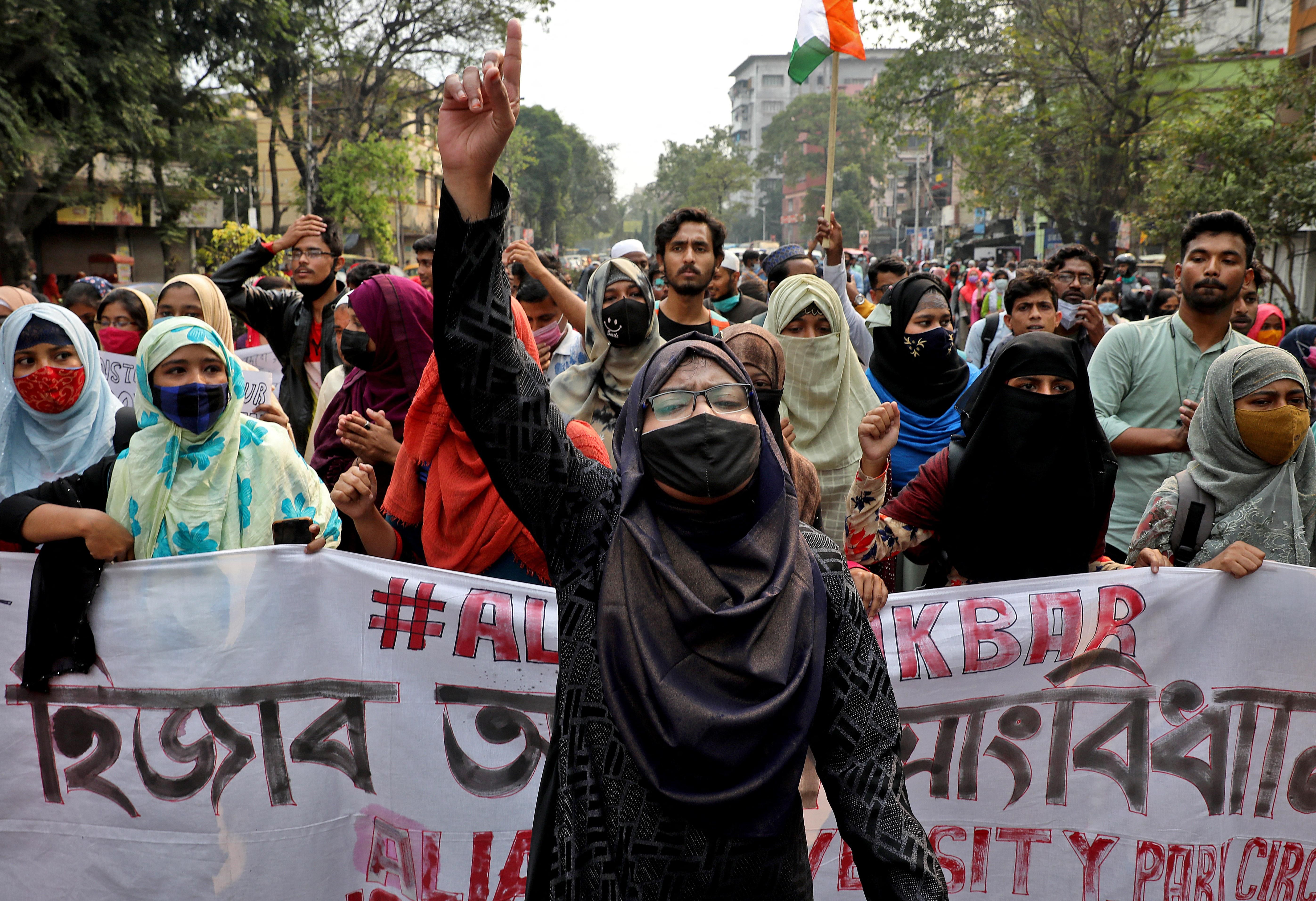Hard Numbers: Indian hijab protests, Chinese windfall for sub-Saharan Africa, Germany running low on gas, Russian political zoo
3: Hundreds of students took to the streets and blocked roads on Wednesday in Kolkata, India, to protest a ban on wearing the hijab in classrooms in southern Karnataka state. Karnataka previously shut down schools and colleges for three days to ease tensions between Muslims and Hindus over the head covering. (Karnataka is run by the Hindu nationalist BJP Party of PM Narendra Modi, while West Bengal, which is home to Kolkata, is governed by a top Modi critic.)
23 billion: Chinese development banks pumped $23 billion into infrastructure projects in sub-Saharan Africa from 2007 to 2020, according to a new study by the Center for Global Development. That’s more than double the combined amount provided in the same period to the region by Western international financial institutions.
36: Germany’s natural gas reserves have fallen to about 36 percent of their maximum capacity — less than enough for a week of very cold temperatures. The country gets more than half of its gas from Russia, which is concerning given the rising tensions with Ukraine and delayed approval of the Nord Stream 2 pipeline.
25,000: A Russian zoo canceled an online poll to pick a new mascot after it first got political and later reeked of fraud. An orangutan backed by an ally of top Vladimir Putin critic Alexei Navalny was ahead until it was overtaken by a (presumably independent) snow leopard, which got 25,000 votes in just four hours — but only from 2,000 visitors to the website.